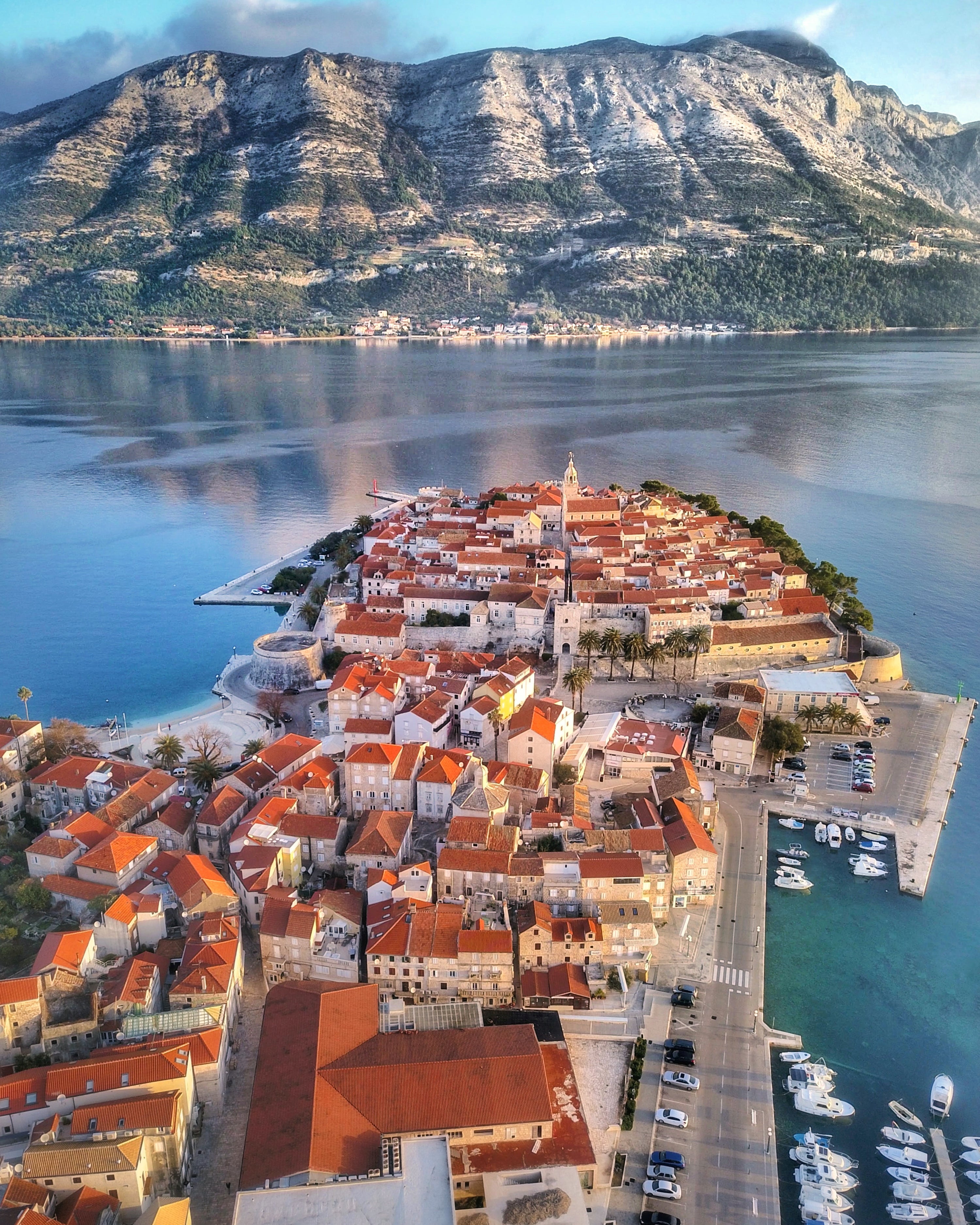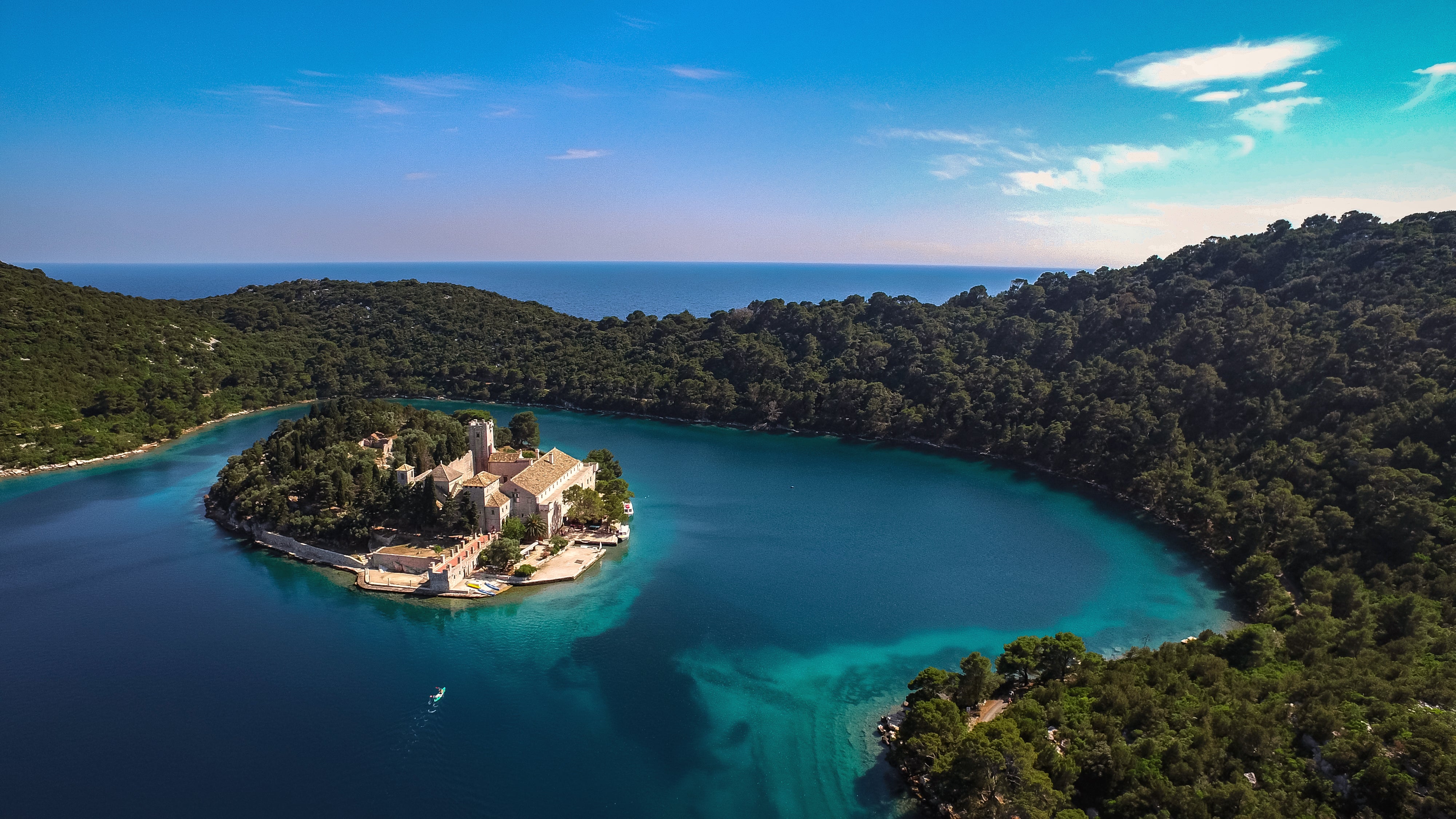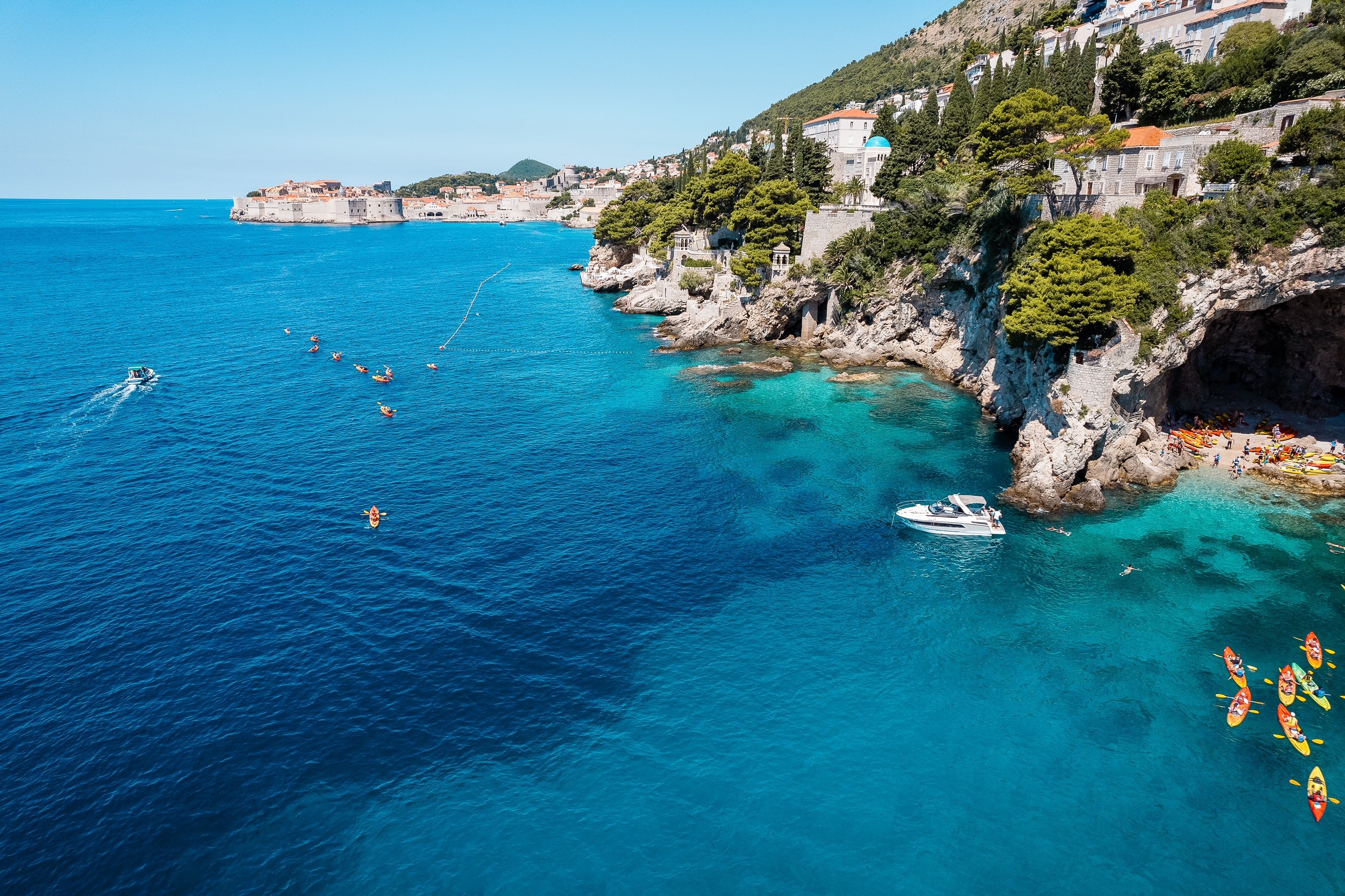This website uses cookies so that we can provide you with the best user experience possible. Cookie information is stored in your browser and performs functions such as recognising you when you return to our website and helping our team to understand which sections of the website you find most interesting and useful.
When summer comes, sometimes all you want to do is escape city life and immerse yourself in nature. So for secluded golden beaches, stretches of shaded forest and peaceful national parks, look no further than the Dubrovnik Riviera.
Of course, Dubrovnik itself boasts myriad charms: a UNESCO heritage town with ancient fortified walls, beautiful Baroque architecture, and a spectacular main street, the Stradun. But the Riviera region beyond also has a huge amount to offer, particularly if you’re looking for that getting-away-from-it-all feeling and a slower pace of life. It falls under the domain of Dubrovnik-Neretva, Croatia’s southernmost county, and with only 127,000 residents scattered across an area of nearly 700 square miles, there’s a true sense of space, freedom, and utter relaxation.
Idyllic islands

The Riviera’s natural beauty will captivate you, and its handful of islands have this in spades. Start with the stunning landscapes of Korčula, reached by a two-hour catamaran journey from Dubrovnik. You can also catch a ferry here from Orebić in Pelješac, which takes just 20 minutes, or alternatively from Split. This idyllic spot got its name when the Ancient Greeks saw its dense oak and pine forests and called it Korkyra Melaina, meaning ‘Black Corfu’. The mediaeval main town offers picturesque cobbled streets and a 15th century Gothic Renaissance cathedral, but away from its quiet charm you’ll find unspoiled beaches and coves, and acres of vineyards and olive groves which produce the island’s excellent local olive oil and wine.
Don’t miss the archaeological site of Vela Spila, on the west coast, a large, domed cavern which housed prehistoric communities over 18,000 years ago. Korčula has an archipelago of its own, called Škoji: hop on a water taxi from the old town’s marina to explore the idyllic isles of Badija, home to a 15th century Franciscan monastery and a flock of fallow deer, the busier Stupe which has a beach club with a restaurant and bar, and small, delightful Vrink, with a pebbled beach perfect for paddling and sunbathing.
Outdoor adventures

Another pretty island is Mljet, located just off the Pelsejac peninsula, which boasts Mediterranean vegetation, crystal-clear seas, and soft, sandy shorelines. At its western end you’ll find 13,000 acres of tranquil National Park, criss-crossed with sheltered walking and cycling tracks, a ruggedly beautiful coastline, ancient ruins and two saltwater lakes.
One of the most popular hikes is the trail that leads to the summit of Montokuc, the highest point of the island, which will reward you with a stunning panorama, but if you prefer to explore on two wheels, there are several bike trails which take you through forests, along the lakeshore, and past beautiful viewpoints.
If you enjoy swimming and snorkelling, dive right into the calm, crystal clear waters of Veliko Jezero (Big Lake) and Malo Jezero (Small Lake). Alternatively, you can explore them by kayak, taking in the scenic forest and cliff views at your own pace; look out for the small islet of St Mary’s in the middle, home to an ancient Benedictine monastery.
Secluded shores

Lastovo is a tiny paradise which is Croatia’s most remote inhabited island. With a population of less than a thousand people, this is where to head when you want absolute quiet and seclusion. Here you’ll find thick forests, craggy coastline, and peaceful walking trails, where the only sounds you’ll hear are the waves rolling in, and occasional birdsong. Together with its surrounding archipelago, it makes up the Lastovsko Otocje, or Lastovo Nature Park, one of the best-preserved marine areas in the Adriatic. Think cliff top views, woodland hikes, and swimming around sea caves and coral reefs, all within a chain of small islands.
For another secluded spot that offers natural beauty, shade and a gorgeous beach then take a trip to Betina Cave, not far from Dubrovnik’s Old Town. Only accessible by sea, you can take a boat trip or even paddle there on a guided kayak trip, then enjoy its sheltered surrounds and crystal-clear waters, perfect for snorkelling and swimming.
Last, but not least, make time for the Elaphite Islands: Šipan, Lopud, and Koločep. Populated with just a handful of people (between them, there are fewer than a thousand residents), they truly offer the chance to switch off and unwind. The islands get their name from the Greek word elafos, meaning deer; and quiet beaches, serene pine forests, and calm, turquoise waters make up their unspoiled landscape.
Lopud is car-free, but you can rent bikes or kayaks to explore your surroundings; there are also a few churches dating from the 15th and 16th centuries, as well as the remains of the Rector’s Palace, and the ruins of a fortress. The smallest of the islands is Kolocep, which provides the ultimate in tranquillity; take a trip to its Blue Cave, so-named because the water within it is a startling shade of azure.
Finally, Sipan has a bit more buzz, mainly because it’s bigger, and also allows cars, but you can still find relaxing beaches and quiet coves. Its two main villages, Sudjuradj, on the southeastern tip of the island, and Sipanska Luka, on the western side, are each centred around a bay, where you’ll find cafes, bars and restaurants, perfect for relaxing and replenishing after a day enjoying the great outdoors.
For more Dubrovnik travel inspiration and information, head to Visit Dubrovnik



 Africana55 Radio
Africana55 Radio 
